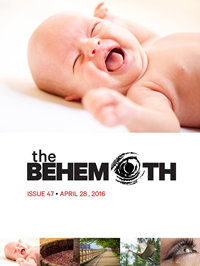How Nature Soothes the Soul
Scientific evidence for the benefits of outdoor recreation. /
The accumulations of dust, dirt, and mud on my childhood clothes were badges of honor—signs of a satisfying nature excursion. It’s not as if the woods were drawing me. They were just the natural place to go in the boondocks of Central Arkansas. But something happened to me when I traveled through those pine and oak woods; the crackling footfalls on dead leaves, the paradoxical stillness of rustling trees, and the unconditional acceptance of the Ozarks and Ouachita mountains always said, “You are somewhere different now.” They still do. I didn’t think much about it when I was young. The woods were just there, offering solitude, peace, quiet—escape from the distractions that noise and hurry impose.
As an adult, I started using a different word for my walks in the woods: medicinal.
Research has confirmed what we instinctively know: Nature is good for our psychological and physiological states. God’s provident gift of the outdoors not only feeds and clothes our physical selves, but also soothes our soul. In recent years, there has been growing attention to the neurological case for spending time in the woods.
In a 2010 study, for example, undergrads took two 15-minute walks. One was indoors, along an assigned empty hallway. The other was outdoors, on a tree-lined riverside path. The participants reported feeling more vitality walking on the river footpath. A simple wilderness excursion resulted in the participants feeling more alive and having more energy.
“Nature is fuel for the soul,” says Richard Ryan, lead author of the study. “We have a natural connection with living things… Nature is something within which we flourish.”
In a 2009 study, people who spent time in wooded environments had lower pulse rates and other signs of decreased stress than they did when they spent time in an urban environment.
It is no secret that technology can be a distraction. Our attention span is like that of a sugared-up 6-year-old. I feel the technology overdose that Nicholas Carr, Neil Postman, and other authors have warned of. I can’t even bother sitting through a 15-second pop-up ad.
According to a 2012 study in PLOS ONE, exposure to nature is a remedy for our technologically induced attention deficiency. In a world where we are constantly bombarded by clickbait, instant messages, email, and social media, the wilderness offers a quiet respite to reorient our compasses.
Four days immersed in nature and disconnected from technology increased creativity, problem-solving abilities, and cognitive skills for a group of hikers.
The results of these studies probably won’t be surprising. The benefits of nature are intuitively or demonstrably obvious to anyone who has ever taken a walk in the woods. But we might downplay the simplicity of it all.
As Belden Lane wrote in Backpacking with the Saints, “All I know is that solo backpacking is a practice that feeds me, even in moderately tame wilderness terrain. I don’t have to face down grizzly bears or survive flashfloods in desert slot canyons to feel fully alive in backcountry.”
One need not spend months secluded in a wilderness cavern to “experience nature” or its benefits. A short walk in a wooded park can benefit cognitive and physical states, providing a remedy for our urban and suburban blues.
God created a world that gives more than just the necessary sustenance for life. His creation offers spiritual aid. When the created touches creation, we’re reminded of the Creator. He built the stillness and tranquility of the woods, and built our brains and bodies to respond to them—coming together in a silence where God often speaks.
“All came from dust,” the Teacher wrote in Ecclesiastes. “And all will return to dust.” Playing in the dust, walking through the world that has grown from the dust, is a fruitful and meaningful way to pass the time in between.
Chad Meeks is a PhD student and adjunct professor at Southwestern Baptist Theological Seminary. He earlier wrote for The Behemoth on zombie ants and how time appears to a photon.
Also in this Issue
Issue 47 / April 28, 2016- Editor's Note from April 28, 2016
Issue 47: A good, dreadful covenant mark; wine’s life from grapes’ decay; and nature’s remedy. /
- Why Did God Choose Circumcision?
The hopeful, beautiful, and terrible reason for the drastic covenant. /
- Wine, Wine, Wine!
We’ve turned dying fruit into a durable drink for millennia but only recently understood it. /
- The Cranes
“Where along the migratory way” /
- Wonder on the Web
Issue 47: Links to amazing stuff.


